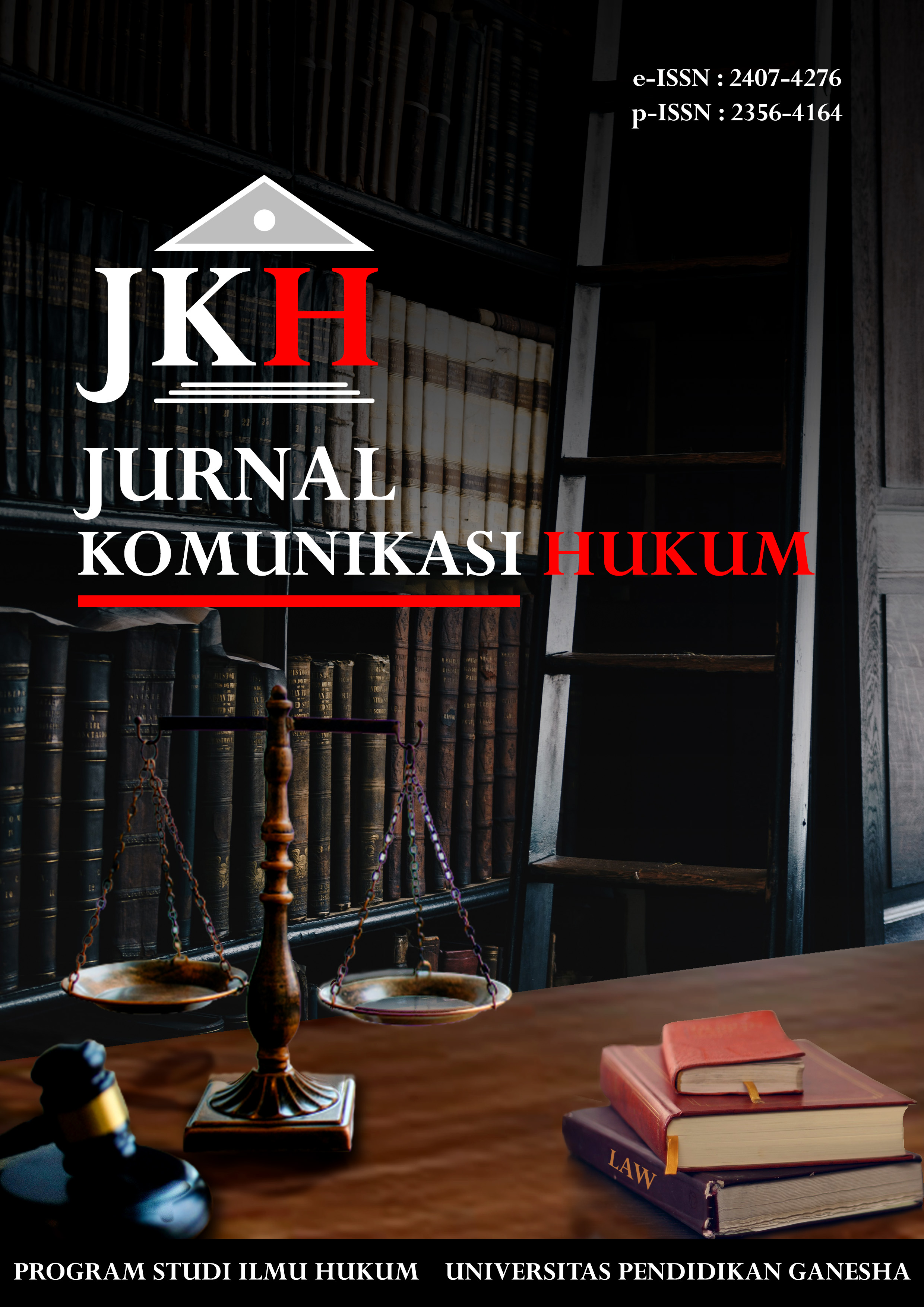Relevansi Hubungan Hukum Pidana Lingkungan Hidup Indonesia dengan Prinsip Sustainable Development Goals
DOI:
https://doi.org/10.23887/jkh.v7i2.37992Abstrak
Development is a goal of the Indonesian nation to increase in increasing its growth. Development must be based on the principle of sustainable development based on environmental principles in the Sustainable Development Goals. However, in its implementation, development sometimes slightly ignores environmental aspects, so that the role of environmental criminal law is the juridical basis in carrying out the limits of authority carried out on the environment and as the basis for law enforcement. This research was conducted using the juridical-normative method, where the study of the approach used a conceptual approach. The purpose of this study is to examine whether the development goals in the SDGs have the same goals related to the aspect of law enforcement. The results of this study found that the pillars of the SDGs in terms of realizing environmental-based development must be supported by institutions such as politics, law, and bureaucracy in realizing development and law enforcement that is just. Law enforcement based on Law 32 of 2009 on Environmental Protection and Management which is the result of revision of several previous laws seems to have been able to provide fair law enforcement for the community and the environment.
Unduhan
Diterbitkan
Cara Mengutip
Terbitan
Bagian
Lisensi
Authors who publish with this journal agree to the following terms:- Authors retain copyright and grant the journal right of first publication with the work simultaneously licensed under a Creative Commons Attribution License that allows others to share the work with an acknowledgement of the work's authorship and initial publication in this journal.
- Authors are able to enter into separate, additional contractual arrangements for the non-exclusive distribution of the journal's published version of the work (e.g., post it to an institutional repository or publish it in a book), with an acknowledgement of its initial publication in this journal.
- Authors are permitted and encouraged to post their work online (e.g., in institutional repositories or on their website) prior to and during the submission process, as it can lead to productive exchanges, as well as earlier and greater citation of published work (See The Effect of Open Access).
Authors who publish with this journal agree to the following terms:
- Authors retain copyright and grant the journal right of first publication, with the work [SPECIFY PERIOD OF TIME] after publication simultaneously licensed under aCreative Commons Attribution License that allows others to share the work with an acknowledgement of the work's authorship and initial publication in this journal.
- Authors are able to enter into separate, additional contractual arrangements for the non-exclusive distribution of the journal's published version of the work (e.g., post it to an institutional repository or publish it in a book), with an acknowledgement of its initial publication in this journal.
- Authors are permitted and encouraged to post their work online (e.g., in institutional repositories or on their website) prior to and during the submission process, as it can lead to productive exchanges, as well as earlier and greater citation of published work (See The Effect of Open Access).












